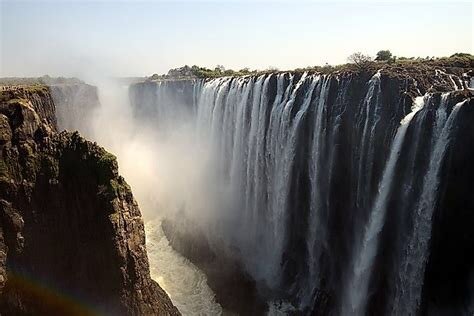
The changing needs of our climate and the science to its preservation . In the past 40 years, the world has witnessed more than enough climate change to make us all apprehensive about the consequences. One of the major reasons for its worsening effect is the industrial revolution that led to indiscriminate use of coal and then fossil fuel that led to global warming. But the industrial revolution also witnessed the scientific advancement and several scientific discoveries that made us better equipped to cope with such a common challenge.
The industrial revolution was a time of great innovation in science. Mankind realised its abilities in harnessing power to propel the scientific revolution. But, the results are not what one would expect. Today, the industrial revolution has taken humanity away from nature. According to researchers, the population of the earth can increase by 5 billion in the next three decades. The purpose of the industrial revolution was to control the population and to do that, it took away people from the natural habitats.
Plants and animals are the natural resources that humanity depends on. An organism is given by God to man and is the source of all living being. Even in our religious texts, man is declared the Lord of the Creatures, and if God could give us life, man should have had the responsibility of protecting the life of every creature and nature.
The last time I was in Zambezi river was more than two decades ago and it was such a beautiful experience. You see the trees from a distance and they looked harmless and very beautiful and also you could smell the freshness.
The river appeared from nowhere and it was really an impressive sight. I still feel that if Zambezi river is preserved, Zambezi will be the beautiful sight of Victoria Falls.
But the increasing use of coal to generate electricity in the region has disturbed the delicate balance of the natural environment, hence threatening the lives of many living things. According to findings from various researches, Zambezi's wildlife could be around 80% dependent on birds.
Zambezi, which is the second largest river in Southern Africa is the largest tributary of the mighty Zambezi river. The Zambezi originates from the Zambezi basin in Lake Kariba. But, Zambezi river is not the only waterway that serves Zambezi region. According to the statistics from the Zambezi River Basin Authority (ZRB), the Zambezi River has a total basin surface area of about 1,114,903 km2 and the basin discharges more than 7.6 billion cubic metres (bcm) of water into the world's second largest lake.
To attain the cleanest of waters and to conserve wildlife and ecosystems, the requirements of the water availability and the amount of nutrients going to Lake Kariba from various tributaries must be carefully managed.
During the annual floods, up to 2,000 to 3,000 km2 of vegetation is destroyed which does not only affect animals but also agriculture. However, the biggest challenge that threatens the water resources of Zambezi River Basin is climate change.
While Zambezi River is a living entity that feeds other waters, this threatens the entire life of river. But, the greatest threat is that the tributaries of the river have been affected by population growth and industrialisation. Hence, the influx of people and the increased movement of people from various sources is eroding the natural habitats.
For example, studies have shown that the current river has changed from its original and natural shape. The flow of the river has changed to favour the livelihood of the people. The main tributaries of the Zambezi River are Lake Chiuta, Okavango Delta, Chobe river and Nyasa River. A study done by Water Africa shows that in 1990, the flow of Lake Chiuta was at its maximum, however, in 2015 the river water started drying up due to over-exploitation of ground water.
The population increase in this region has also caused various changes in the landscape of the rivers. Many roads are being constructed which destroy the life of river and other ecosystems. In the past, when the area was under German rule, animals and birds thrived in this region, now, they are on the verge of extinction.
To preserve this rich ecosystem, we can reduce the pollution of the river and also have an efficient and modern water supply system ofriver and also have an efficient and modern water supply system.
It has been recorded that tourists from South Africa who visit